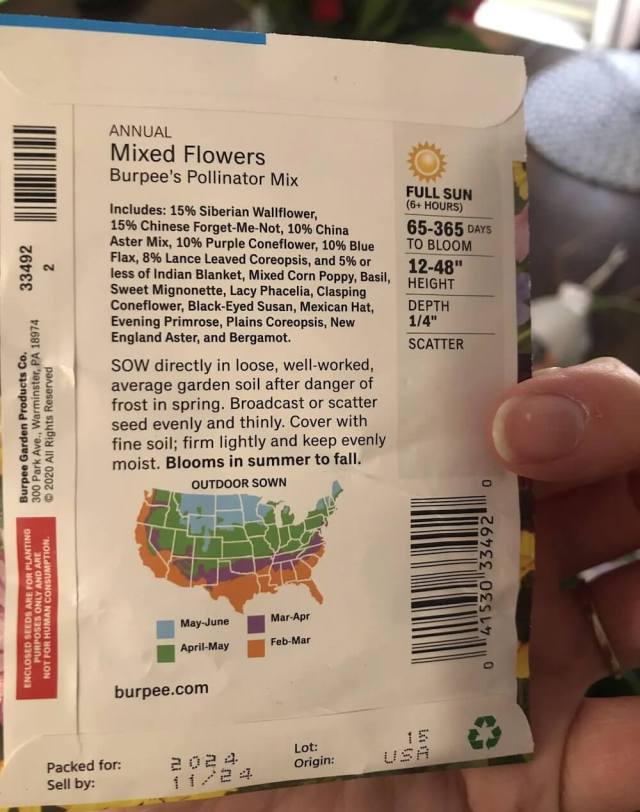After receiving a gift of assorted wildflower seeds, one gardener was disappointed to take a closer look and realize they couldn't actually plant them.
The reason? Nearly all of them were geographically invasive to their area.

They wrote about the situation on Reddit, double-checking with the gardening community to make sure they had understood correctly. "Would it be a terrible idea to sow these wildflower seeds?" they asked. A photo they included of the packet simply said "Mixed Flowers," with a fine-print list of the specific species.
Unfortunately, they identified that most of the flowers were not native to their growing region in Portland, Oregon. "Since they're annuals, I'm considering spreading some for this summer and then doing something different with native plants with the space next year," they wrote. "But I want to make sure I won't be releasing anything problematic into the ecosystem."
The community response was swift and unanimous. "Throw them out," one person wrote. "They're all garden escapes practically and are going to both be a mess to take care of and they don't belong here."
One person shared their own experience with a similar seed packet. "My recommendation is to not plant them. My experience was not favorable at all," they said. "They may be annual but self re-seeding and you'll experience dealing with them where you initially plant them and near by where the breeze takes the seeds. … Turned into a weed headache for a few years."
While many types of wildflowers are beautiful, the best — and easiest — approach for any home gardener when it comes to planting is to choose ones that are native to their area. In just a year or two, this rewilding approach will lead to a thriving garden that's a plentiful habitat for pollinators.
In turn, they're responsible for a large percentage of our own food supply. And even better, they're cheaper and more resource-efficient to grow than non-native plants — after all, they've evolved to thrive exactly where they're planted.
Invasive species, on the other hand, tend to grow explosively, crowding out these beneficial native plants by siphoning away needed resources for themselves. Not only do they interrupt the healthy function of the ecosystem, but they provide few ecological benefits themselves.
If you're looking to rewild your yard, the National Wildlife Federation's Native Plant Finder is a great place to start.
Join our free newsletter for easy tips to save more and waste less, and don't miss this cool list of easy ways to help yourself while helping the planet.









